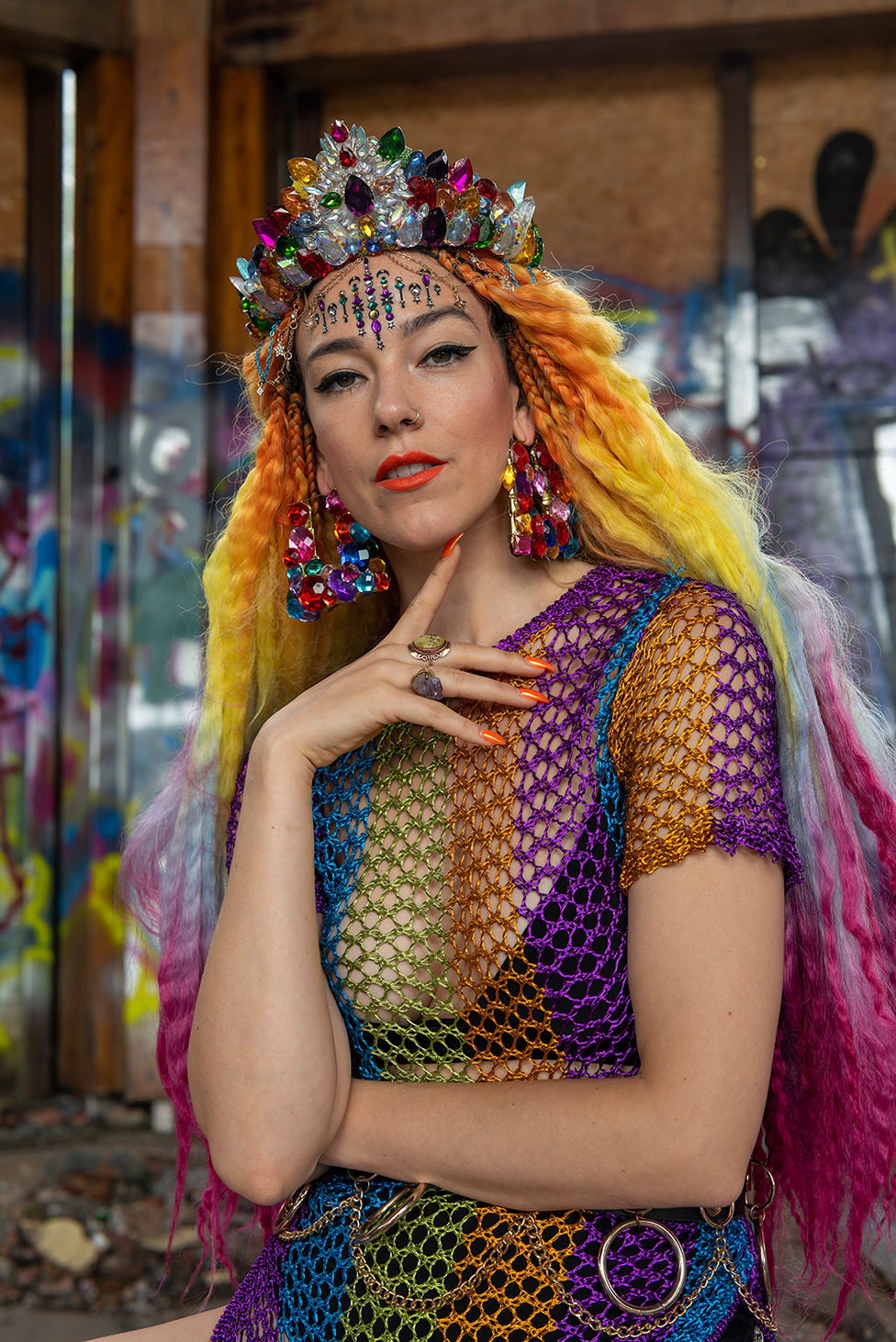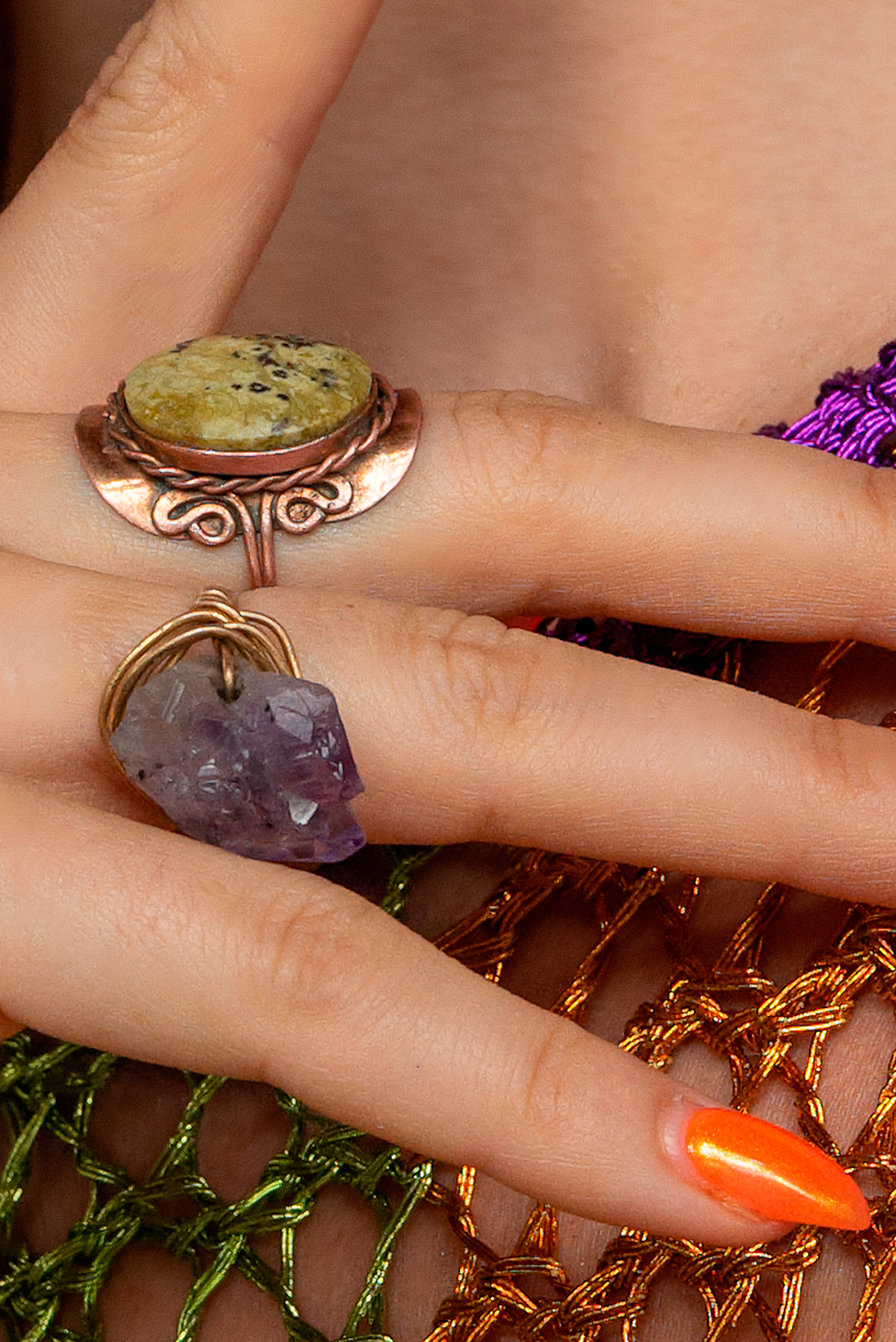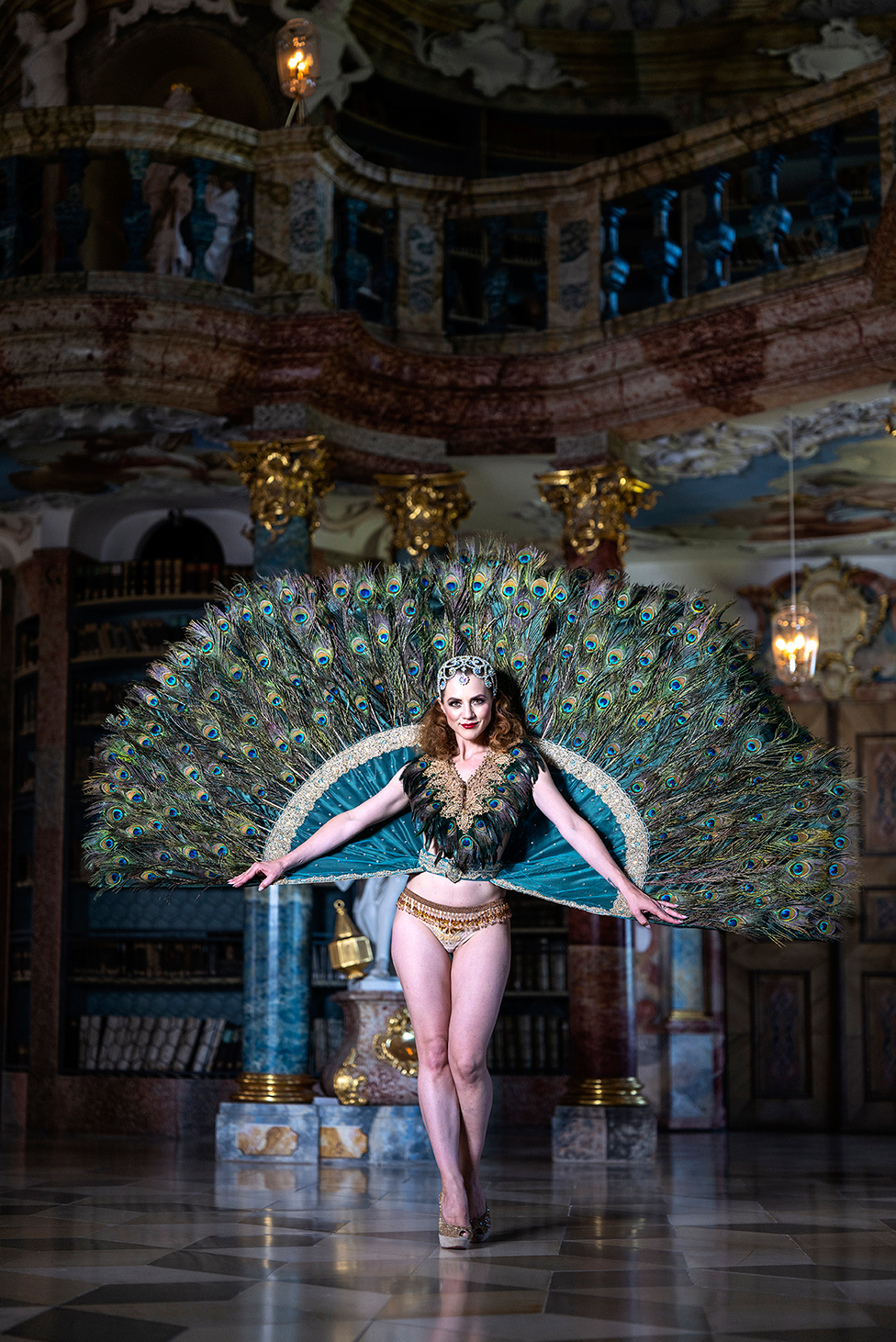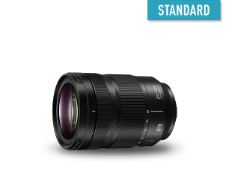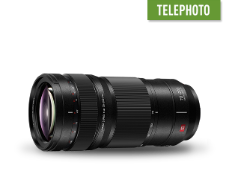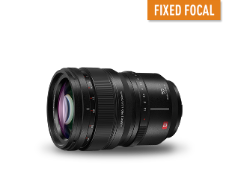
Martin Dürr is a German fashion and portrait photographer. He started photographing at an older age; for the first 25 years of his career he worked in graphic design and illustration. ‘My images are like illustrations. I’m more an artist than a photographer. I’m not really a technique person.’ That being said, he decided to test the high-res mode of the LUMIX S1R in a series of portrait shoots. In this mode eight shots are combined in a single super high-res 187 megapixel image. ‘The results were amazing, there was so much detail, I could zoom in and just keep on zooming in. The LUMIX S1R combined with the LUMIX S PRO 50mm lens produces fantastic colours.’
Growing up, Martin wasn’t a stranger to photography. ‘My father was responsible for camera development at AGFA. We had thousands and thousands of slides at home. I was more interested in making the images I wanted with art and illustrations.’ He worked in design and illustration for 25 years. ‘I specialised in 3D design, for example, for computer games. I spent too much time behind the computer, communicating by phone or e-mail, when I really love to work with people.’ Working as a photographer has brought this ‘isolation’ to an end. He also presents workshops. ‘Whereas my father knew everything about camera technique, I don’t share his passion for it. Luckily, LUMIX cameras enable me to make the photographs I see in my head. I started out with a DSLR, but never achieved the sharpness I wanted. When I borrowed a GH5 from a friend, I had a eureka moment.
For the first time the images were just as I had imagined them and I decided right there and then to switch. Some people advised against it, saying I’d lose clients. But the opposite has turned out to be true: working with LUMIX has brought me more clients.’ He wanted to see if he could create even bigger files for these clients. ‘They could come in handy later if companies decide they want to change small details.’ He decided to see if the high-res mode improved his portrait photography. The high-resolution mode works by utilising the sensor-shift stabilisation system to move the sensor by half a pixel’s width in a box pattern, capturing eight images in total and combining them into one ultra-detailed photograph. This mode is suitable for landscapes, still life photos, and fine art reproduction using a tripod. There is also a second mode that you can use if moving objects are in the frame.
‘The idea was to do three shoots with models in exceptional locations with amazing outfits. I wanted plenty of details that would really put the high-res mode through its paces, as well as windy locations and moving models, using a feature that wasn’t originally developed for this kind of photography.’ The first shoot took place near Gavorrano, Tuscany. ‘Natascha, our model, was wearing clothes from Nina Grundler, who has one of the biggest collections of Renaissance clothing in Germany. We used three locations: a very windy ruined castle; a place in Gavorrano itself; and a geothermal area nearby Gavorrano.’ The second shoot was closer to home. ‘In Berlin we did a shoot in the BLUB, an abandoned pool in the middle of the city. The swimming pool is dilapidated, but it’s still a beloved place for artists. There was less wind, but we had very bright sunlight and harsh shadows. Kleos Bubble modelled: she’s a designer, model, dancer and photographer and well known in Berlin and the global events scene. We selected clothing that fitted the scenery perfectly, with lots of details and colours.’
The last shoot was in the library of the Wiblingen Monastery in Germany. ‘The monastery has a breathtaking room with rich colours and details on the columns and bookshelves. ChiChi Bouvet was our model, an international burlesque star with unique and unparalleled costumes. This was the basic idea for the project: do a shoot in a library with books containing stories and reports about foreign tribes with different rituals and dress.’
He worked with models he already knew on these shoots. ‘That was really important for this project. I had to be familiar how they move, pose and be certain they would be able to hold still.’ What were his findings? ‘Even though this mode wasn’t really designed for portrait photography, the results are amazing. The images have so much detail and the colours, for example of the skin, are wonderful. That’s really important for a portrait photographer. The LUMIX S1R with the LUMIX S PRO 50mm lens is a very powerful combination and discovering what the high-res mode can do for my photography has proven to be very worthwhile.’

Martin Dürr
Born and raised in Munich, Germany Martin Dürr started his career as an illustrator and designer where he worked for international companies until he get into portrait and fashion photography in early 2014. Based on all his experience he developed his own unique photo style he is known for. Not tied to any specific genre he releases his creativity and is shooting in different styles abstract to opulent scenery, always with the aim to generate images that will stay for a long time in the mind of the viewer. For Martin, one key to success in photography is the ability to set up the right communication between all participants in a shooting. Regardless of which “type” the shooting is: whether it is a workshop, a commercial, a private portrait shooting or a fashion shooting with a great team. Talking the same language in photography opens up a cornucopia of ideas which results in images that will fascinate.



